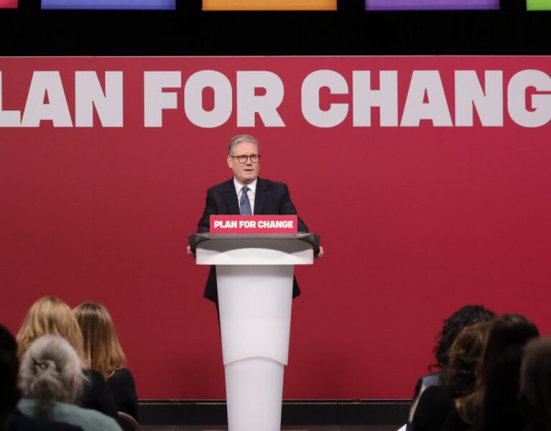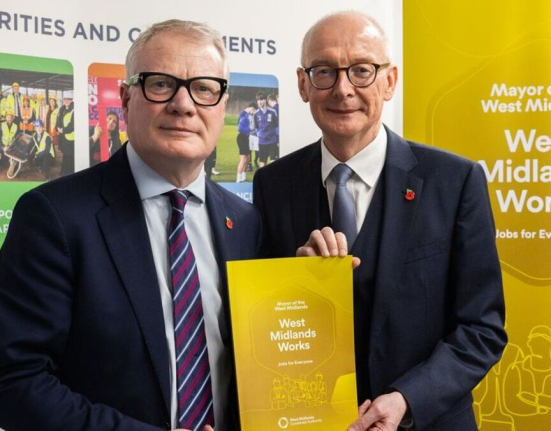Opposition warns of ‘spiralling spending’
The Government’s 2025 Spending Review has set the tone for the next phase of Britain’s economic policy – promising billions in investment while drawing sharp criticism from the opposition. In the West Midlands, the announcements signal new opportunities in housing, transport and high-tech sectors, but not without concern over long-term affordability and local service pressures.
Delivered by Chancellor Rachel Reeves, the review includes a £29bn uplift in NHS funding, a £39bn commitment to affordable housing over 10 years, and major backing for clean energy, defence and digital transformation. Day-to-day departmental budgets will grow by 2.3% in real terms annually until 2029.
A regional boost: housing, transport and innovation
West Midlands Mayor Richard Parker called the review “a vote of confidence in our plan” to rebuild the region.
Among the most significant local gains:
- Transport: New capital is pledged for long-awaited infrastructure including the Midlands Rail Hub and East Birmingham Metro extension, part of a broader push to devolve transport funding through the £15.6bn Transport for City Regions settlement.
- Housing: The West Midlands will share in the £39bn Affordable Homes Programme, targeted at areas with the highest housing need. Mayor Parker called it “the biggest boost to social housing in a generation”.
- Skills and jobs: New apprenticeship and further education funding will support training for 16–19-year-olds, with £2.4bn allocated for the School Rebuilding Programme, potentially benefiting dozens of schools in the West Midlands.
- R&D and innovation: The region’s universities and tech clusters stand to benefit from a £22.6bn annual research and development budget by 2029-30, supporting sectors like automotive, life sciences, aerospace and digital – all regional strengths.
- Fairness measures: Policies to cap school uniform costs and expand free school meals to all children in Universal Credit households – worth an estimated £410m annually – could ease pressure on low-income families in Birmingham, Walsall and Wolverhampton.
“This is what rebuilding Britain looks like,” Parker said. “Our defence spending will rise, our security strengthened, and some of the most deprived communities in our country – including right here in the West Midlands – will get the support they’ve long deserved.”
Cuts, questions and concerns
But the investment headline masks underlying pressures. Despite regional boosts, certain departments with strong local reach are facing real-terms cuts:
- Environment: DEFRA’s day-to-day budget will drop by 2.7%, with implications for local farming support and environmental programmes, particularly affecting rural areas like Shropshire and Warwickshire.
- Home Office: Down by 1.7% in real terms, despite rising costs in asylum and policing. While Solihull and Coventry are set to benefit from neighbourhood policing commitments, it’s unclear how strained resources will meet growing community safety demands.
Conservative MP Dr Neil Shastri-Hurst, who represents Solihull West & Shirley, said the Government is losing control of Britain’s finances.
“Spending is spiralling under Labour,” he warned. “Public spending is forecast to hit 45% of GDP next year, and national debt is projected to exceed 96% of GDP. The country is being saddled with uncosted pledges that will inevitably fall on the shoulders of hardworking families.”
He singled out the £9bn in public sector pay deals, adding: “There can be no doubt that this trajectory is unsustainable.”
Dr Shastri-Hurst, a British Army veteran, also criticised Labour’s failure to commit to raising defence spending to 3% of GDP this Parliament. “Vague ambitions will not keep our country safe,” he said.
Outlook: tension between ambition and affordability
The Spending Review outlines a bold, investment-led agenda with clear benefits for the West Midlands – from housing and innovation to transport and skills. But opposition voices warn that without credible funding plans, the gains may come at the cost of tax hikes or weakened public finances.
As the region prepares to absorb record investment, political tensions are set to rise ahead of the autumn Budget – when Britain’s economic arithmetic will face its next big test.







